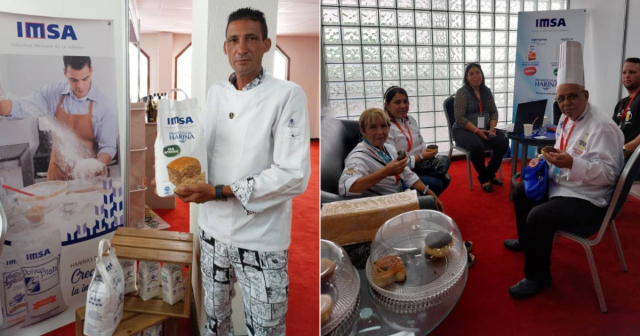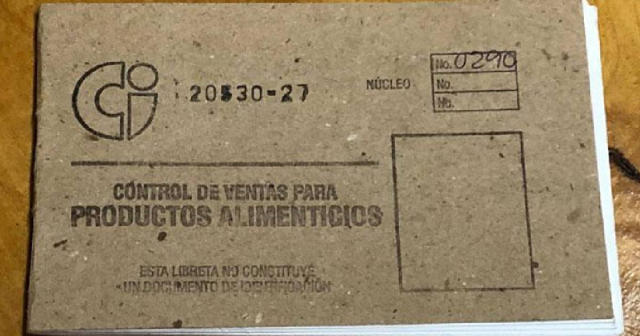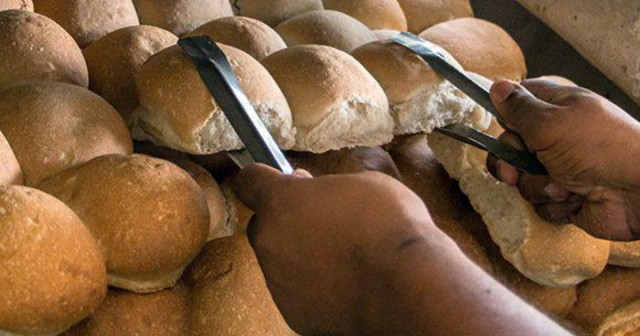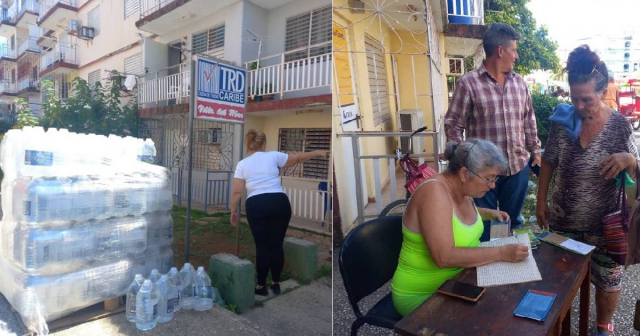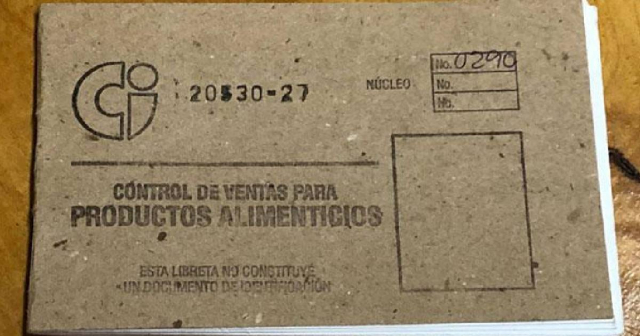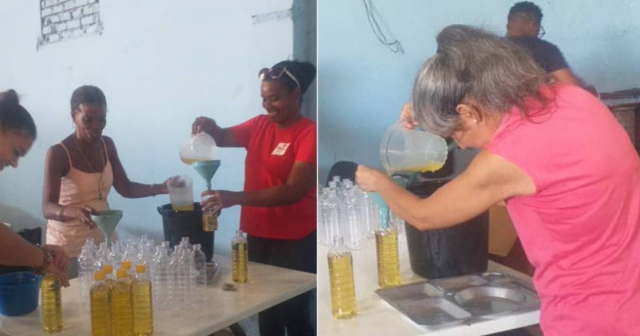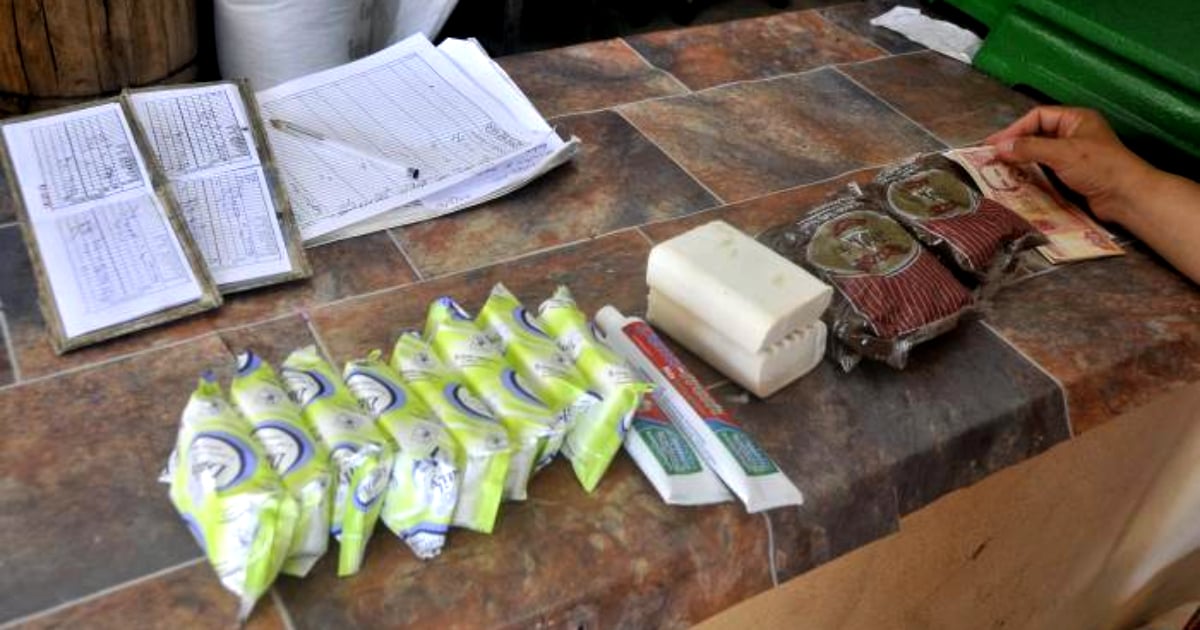
Information from the Ministry of Domestic Trade (MINCIN) published on Monday, September 16, regarding the distribution of products in the regulated family basket revealed that residents of Havana have not received their quota of toothpaste included in the basic regulated family basket since March.
According to the Provincial Trade Company of Havana, from September 16 to 21, products corresponding to the month of August will begin to be distributed in the capital, which the state provides in a rationed and subsidized manner to Cubans.
Among the products pending distribution with delays (corresponding to August and not September), MINCIN included "toothpaste," the delivery of which aims to "make up for the delays of the second bimonthly period of March-April." This means that Havana residents have not received toothpaste through the rationing system since March, six months ago, a situation similar to that experienced in Las Tunas.
The MINCIN list highlights the situation regarding the rationing policy of the Cuban communist regime.
With the failed "economic ordering," the government of Miguel Díaz-Canel announced that it would begin eliminating "excessive subsidies and undue gratuities," which led many to believe that the regime was heading toward the extinction of the ration book.
Díaz-Canel himself explained in October 2020 during the television program Mesa Redonda that the so-called supply book would be gradually eliminated throughout the country. The ruler clarified that "undue subsidies" would be partially eliminated, but that there would be a reform in salaries, pensions, and product prices.
Four years later, the result of these economic measures is evident to all Cubans, who have seen their purchasing power and standard of living drastically decline during this time, suffering a devastating crisis characterized by shortages of food and medicine, as well as the deterioration of public services, alongside the proliferation of misery, inequality, and diseases.
However, in December 2023, the Cuban regime announced that it would end the universal subsidy for the basic food basket. Presenting the economic impact plan before the Second Ordinary Period of Sessions of the National Assembly of People’s Power (ANPP), Prime Minister Manuel Marrero Cruz explained that the idea is to "subsidize people, not products," arguing that this would create a "fairer and more efficient system."
To this end, he said that they would task the Ministry of Labor and Social Security, "over the coming weeks and months," with identifying individuals based on their level of vulnerability and providing them with the corresponding assistance.
"It is not fair that those who have a lot receive the same as those who have very little. Today we subsidize the same amount to a retired elderly person as to the owner of large private businesses who has a lot of money," said Marrero Cruz.
However, two days after the announcement, the Minister of Domestic Trade, Betsy Díaz Velázquez, assured that the supply booklet would be maintained in 2024 and denied the rumors about its disappearance.
"We want to reaffirm once again that the supply booklet continues to be the means of distribution that the Revolution decided to create and maintain 60 years ago for an equitable distribution to our population, and even in the presentation of the economic measures, the Prime Minister reiterated that this policy remains in place," he said to the official ACN. "Therefore, the rumors and speculation about its disappearance are uncertain," he added.
Having confirmed the failure of the "economic restructuring," the regime has reversed its goal of eliminating "excessive subsidies and unjustified freebies," but now seems to be opting for a gradual and silent extinction of the rationing system, which is increasingly accumulating delays in the delivery of fewer and fewer products and in smaller quantities.
This September, the people of Havana will receive 10 ounces per consumer of beans and peas, two pounds of sugar, seven pounds of rice (distributed in portions according to availability), and the salt corresponding to the third quarter (June, July, and August).
In addition, children from zero to two years, 11 months, and 29 days will receive 13 boxes of compote; children from seven to 13 years will receive 4 bags of soy yogurt (there are "territories with pending deliveries"), children from zero to two years will receive a 30-day supply of powdered milk, while those from two to six will only receive a supply of ten.
Cleaning supplies (laundry and toilet soap) and liquid detergent will be delivered on a quarterly and bimonthly basis, respectively. Additionally, there is a reduction in the size of bread that is delivered daily as part of the basic food basket in Cuba, which has decreased from 80 grams to 60 grams.
And the toothpaste, the one that people in Havana haven't received through the ration book for half a year, will also begin to be distributed in the capital. Smile, because things can be, and will surely get worse.
What do you think?
COMMENTFiled under:

